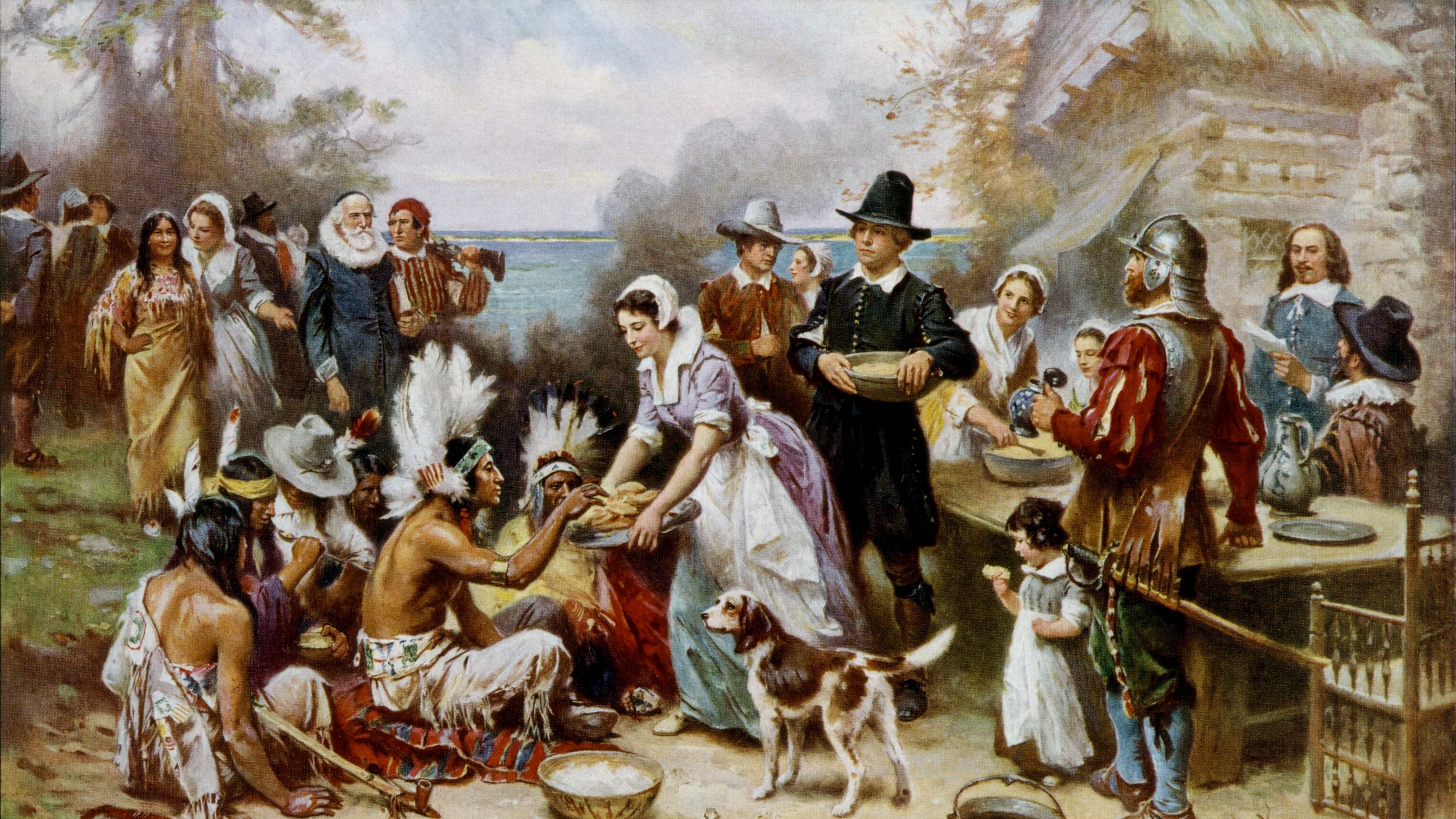It's that time of year again! The sun is setting at 1 pm, your friends are hurting themselves by slipping on wet leaves and the holiday season is almost upon us.
That's right, it's time for the annual How To Talk To Disagreeable People At Holiday Functions talk. These are polarizing times we're living in, and it's entirely possible that this Thanksgiving you might find yourself at the same table as the relative you unfriended in the weeks following the election last year. It's also possible that the conversation may turn to politics, athletes kneeling, the waves of sexual assault allegations against some of society's most revered icons across a variety of professional fields or really any other charged subject that may come up.
I'm a firm believer in people talking things out with one another, and I especially believe that white people should try to have constructive dialogue on issues of race and privilege with other white folks as much as possible. Since I know a lot of you are going to make some self-righteous Facebook post about how everyone should feel bad for celebrating Thanksgiving this week right before you head off to go celebrate Thanksgiving, here are a few things to keep in mind in case you're presented with the opportunity for a discussion.
Now just a note, I make no guarantee that any of these tips will work, nor is this list comprehensive. I've spent a considerable amount of time researching racism and speaking on a number of related topics, so I've learned some things over the years. It's also great if you've seen similar lists out there because the more we speak about an issue, the better, and one of those articles might resonate with someone in a way another piece did not.
So let's begin.
1. Let go of the idea that you're going to change someone's mind or are going to say everything you need to say.
I know, I know, this stinks. It really does, but thinking someone is going to leave a conversation completely changed is setting yourself up for disappointment. Not that someone can't change their mind completely in the course of one conversation, I've done this myself and have seen it happen before, it's just that is a lofty goal to set and can be really frustrating when you're trying to explain a larger concept. Think of it as planting seeds that might grow someday.
2. Do your research
If you have a relative that likes to prattle off dubiously sourced statistics that they read on a mailer from some fringe right-wing group about how their kid's school is going to start offering chutney instead of ketchup, then be prepared to hear some far out stuff. Not that you need to be ready with statistical reasons why chutney is good (it just is), but a lot of the time transphobia, racism, sexism and ableism are justified with some really wild theories, and knowing a little about what people you disagree with are reading and watching prepares you for whatever comes out of left field. Shock and surprise are very easy ways to derail a conversation, don't fall for it.
Part of doing your research also means knowing how to explain your point of view and where it comes from. Want to discuss the history of colonization and genocide that lies behind the celebration of Thanksgiving? Think of ways to explain it in small, digestible pieces that will allows for interruptions and questions. Remember, you're probably going to be a bustling social event where dishes full of food are being passed around or you're being ushered into a cramped buffet line that weaves through the dining room, so you're not going to have a lot of time to get your ideas across.
3. Be aware of the language you use
Not everyone has read that one article about the privilege backpack, or follows Shaun King on Twitter. Not all of us have seen that iceberg meme where instead of a Hemingway quote about writing it's a bunch of types of racism. Remember that everyone is at a different level in their learning process, and not everyone has had the same access to whatever educational materials you did, so be prepared to explain the concepts you're talking about and what the terminology you're using means.
Another thing to keep in mind is to discuss why someone's actions or decisions are racist, rather than why they're a racist. I know this can sound like a wishy-washy thing to do, especially when someone is acting like a giant turd, but there's a difference between saying something like "You're racist because you voted for Donald Trump," and "Your vote for Donald Trump had racist consequences." One statement is a character judgment that is easily refuted with "I'm not racist," which they often follow by mentioning a person of color with some vague proximity to their life, and the other statement requires one to defend their actions, which aren't so easily dismissed.
4. Take care of yourself
Seriously. Take an extra piece of pie. Have a glass of water. Go for a walk around the block. Whatever you need to do to actually enjoy yourself.
If for some reason you've made it out of Thanksgiving unscathed, congratulations! Maybe devote some time this week to learning about the origins of the holiday from Native people or learning about Native people doing cool things. That's it for this week, thanks for stopping by.
